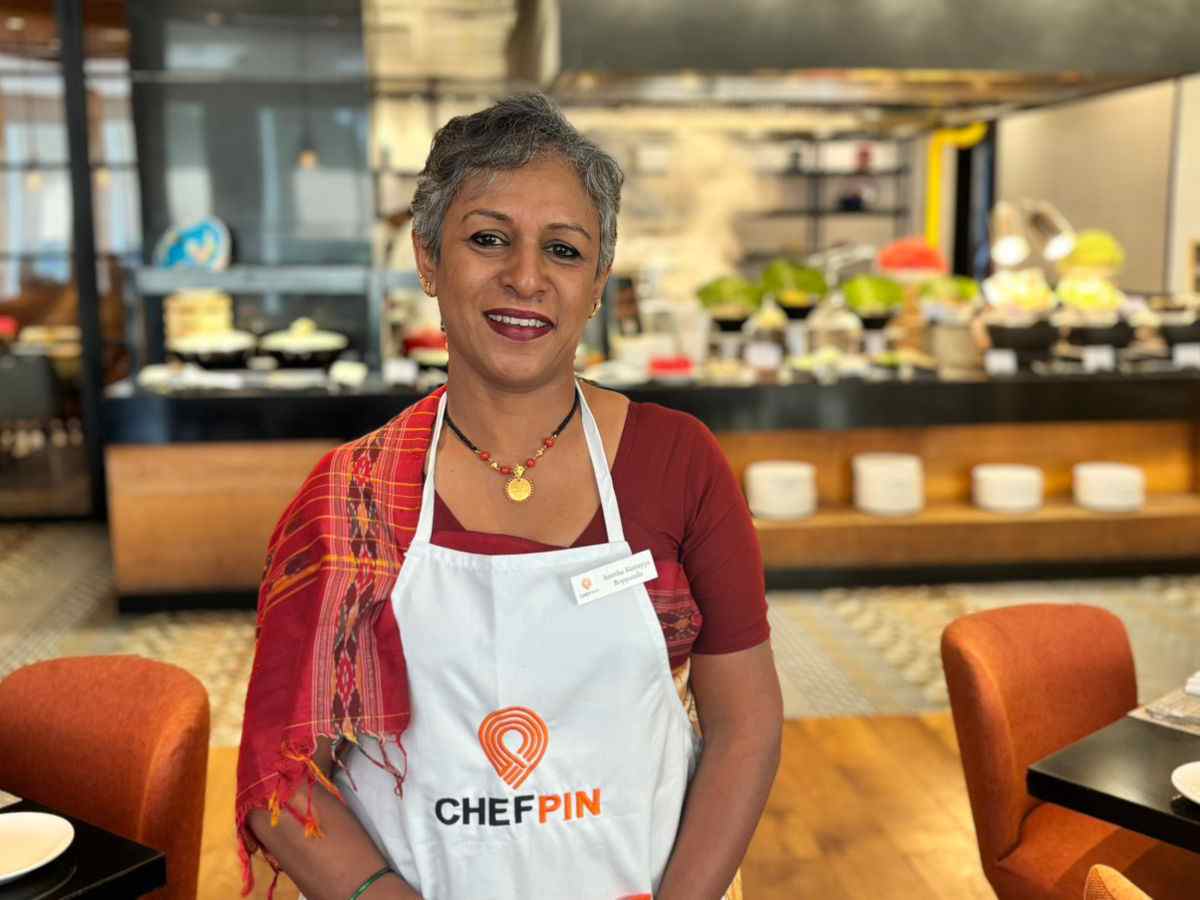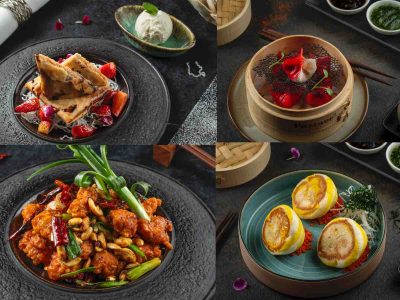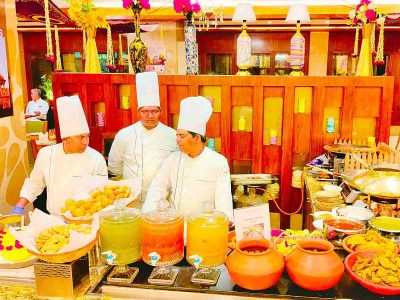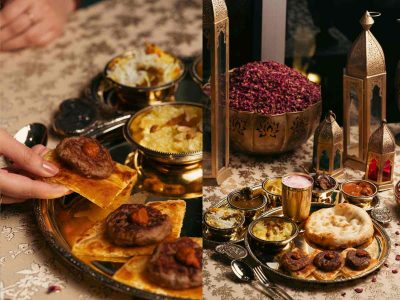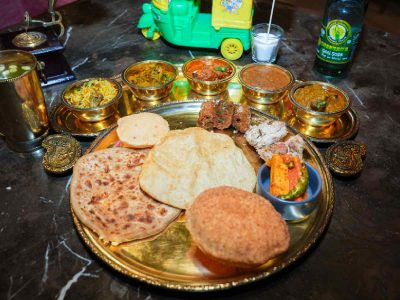Delhi: When it comes to regional cuisines, some remain overshadowed despite their rich history and unique flavours. Kodava cuisine, originating from the lush hills of Kodagu (also known as Coorg) in Karnataka, is one such gem. Known for its bold spices and deep-rooted traditions, Kodava food reflects the land’s abundant biodiversity and the cultural heritage of its people. Chef Smitha Kuttayya Boppanda is determined to bring this cuisine into the spotlight.
“There is an effort, but I don’t think enough has been done because we are too small in number to make a significant impact. So, I take every opportunity to popularise it while ensuring it remains authentic,” she told Patriot.
A taste of Coorg in the heart of Delhi
Recently, diners at Shangri-La Eros, New Delhi, were treated to a rare culinary experience—a true taste of Coorg. A home chef, classical dancer, published author, and storyteller, Smitha brought her diverse expertise to the table, curating an immersive experience rooted in tradition.
The meal commenced with an array of appetisers, including Nugge Elayithkande, a comforting blend of drumstick and potatoes; Kumm Barthad, crispy fried mushrooms; Balekai, golden-fried raw plantains; and the richly spiced Erchi Barthad, a flavourful mutton fry.
Moving on to the mains, diners explored an intricate spread featuring both vegetarian and non-vegetarian delights. Kumbala Curry, a pumpkin-based dish; Baimbale Curry, showcasing bamboo shoots; and Kaad Maange Curry, a tangy wild mango delicacy, highlighted the diversity of Kodava vegetarian fare. For meat lovers, the menu featured robustly spiced Kaima Curry, the hearty Erchi Curry, and the famous Pandi Curry—Kodava-style pork cooked to perfection.
Accompaniments like Kadambutt (steamed rice dumplings), Nooputtu (string hoppers), and Tarkari Pulav complemented the meal. The feast concluded on a sweet note with Kaskase Payasa and Madd Kool, paired with Coorg’s celebrated coffee, making for a truly immersive experience.
Cooking with heart and heritage
Smitha’s love for cooking is deeply personal. “I have loved cooking since childhood. My grandparents on both sides were excellent cooks. My earliest memory is asking my mother what she was making as she cooked on a traditional mud stove (chulha). She would always keep a seat for me next to her, and I would keenly watch what she was preparing. When our neighbours would ask me what was cooking, I would say, salt and turmeric,” she recalled with a smile.
Observing her family’s culinary practices from a young age, she developed an instinct for flavours. “I started watching my mother cook when I was just four. I also spent time with my grandmother, watching her prepare meals,” she said.
Although she has worn many hats throughout her life, from dancing to storytelling, cooking has remained a constant. “Until the age of 24, I thought I would be nothing but a dancer. Then, suddenly, I stopped dancing and started cooking. I still tell stories—I visit schools, work as a counsellor, and talk about mental health through storytelling.”
Spreading the legacy of Kodava cuisine in Delhi
Bringing authentic Kodava cuisine to Delhi was a deliberate effort. “I am grateful to Chef Pin for creating a micro-community where we can share our culinary traditions. We need to talk about ourselves and make our culture known. Not many people know about Kodava cuisine, and I feel passionate about introducing it to a wider audience. So, when Chef Pin invited me, it was the perfect opportunity,” she said.
Also Read: A taste of Kashmir: Jhelum food festival brings the Valley to Gurugram
One of the defining characteristics of Kodava cuisine is the method of preparation. “Most of our spices are roasted. We prefer preserving ingredients for longer durations because cooking elaborate meals every day can be tedious. The spices are carefully roasted, and if you store cooked food in an earthen pot, it stays fresh longer. Coconut is also a key ingredient. We hardly use oil, and our food is naturally gluten-free, which makes it unique,” she explained.
Keeping traditions alive
Maintaining authenticity while cooking outside Coorg is a challenge, but Smitha has found a way. “The easiest way is to bring ingredients from home. Whenever I travel, I carry my own blend of 32 spices, which enhances the flavours and keeps the dishes true to their roots.”
“When we present our cuisine, we avoid vegetables that are not native to the region,” she added.
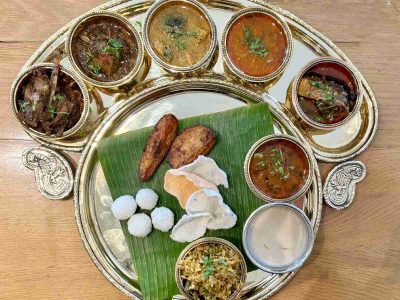
For Smitha, every dish tells a story. “For instance, we never pluck mangoes from trees. We only use fallen ones to make mango curry because we worship nature. Bamboo shoots are fermented for days before being used in dishes. Every single recipe carries its own legacy,” she said. Her book, Chondhu Meets Koda, published in 2020, delves deeper into these traditions.
A vision for the future
Looking ahead, Smitha hopes to bring more recognition to Kodava culture. “I want to raise awareness about our micro-community, which is truly unique.”
For those new to Kodava cuisine, she has some recommendations. “Normally, I would say pork, but that has become a cliché. Instead, I would suggest bamboo shoots, wild mangoes, and horse gram curry,” she advised.
Through her work, Smitha is not just sharing recipes—she is preserving a rich cultural heritage, one dish at a time

